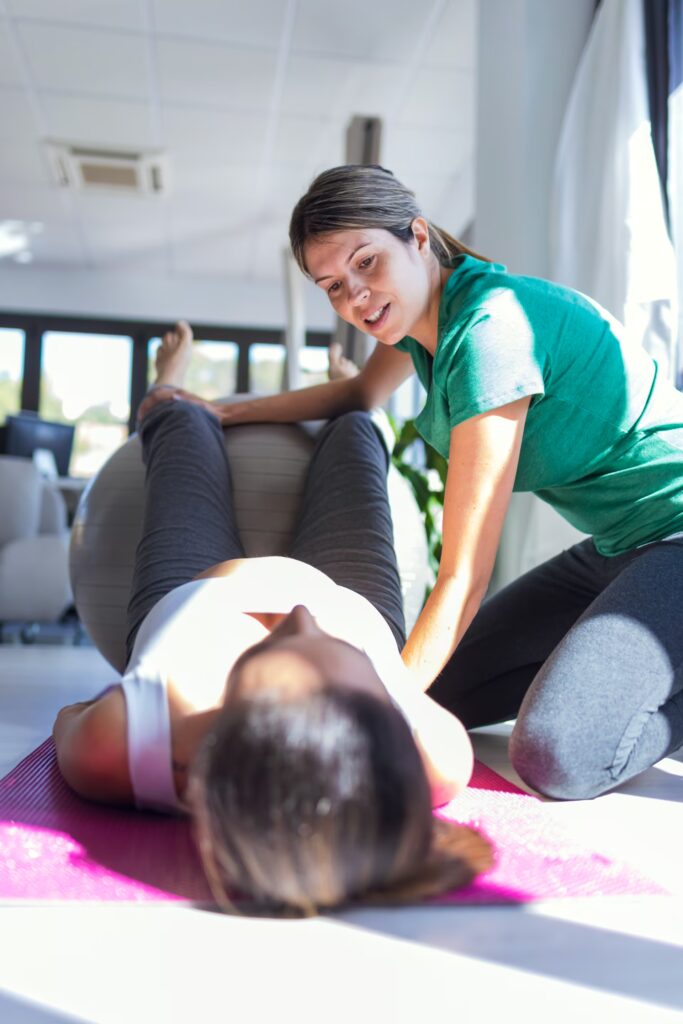
Don’t suffer in silence!
Many problems related to pregnancy and bladder control in women are not an essential part of being pregnant, getting older or simply being a woman.
Many conditions in pregnancy are preventable and treatable. For urinary incontinence simple exercises and lifestyle changes can make a huge difference, whether you are pregnant, getting older or neither.
Pregnancy
Due to increased levels of the hormone relaxin, your ligaments will loosen to allow your pelvis to open during labour. Although this effect is seen mostly in the pelvis, it affects all the joints of the body. 1 in 5 women experience pain or discomfort around their pelvis during pregnancy, and if this lasts for more than a week, you should seek help. Postnatally, you may notice weakness in your tummy muscles and pelvic floor. This could lead to pain, incontinence and poor core strength if not addressed.
For pregnancy related pain we recommend attending for a 45 minute initial assessment for a full evaluation and treatment, after which your physio will advise what further treatment they recommend, if any.
Urinary Incontinence
This is an extremely embarrassing but very common problem. It ranges from the occasional leak when you cough or sneeze, to the urge to urinate that is so strong that you don’t make it to the toilet in time. Stress incontinence is a loss of urine during exercise, coughing, sneezing, laughing or any movement that puts the bladder under pressure.
Overactive Bladder Syndrome is a group of symptoms leading to leakage, including: an uncontrollable urge to rush to the toilet, leakage of urine on the way, going to the toilet more often than usual (more than 7-8 times in 24 hours) and getting up in the night to urinate.
An initial assessment will take one hour and will comprise a detailed history, pelvic floor strength assessment and an assessment of your fluid balance and urine output. A treatment plan will be formulated and agreed with you.
Mummy MOT
The Mummy MOT is a specialist post natal assessment recommended
for all women following delivery. The assessment can take place any
time from 6 weeks until many years after delivery. The assessment
takes 1 hour and includes:
- Full postural screen and assessment of any musculoskeletal issues
arising from pregnancy and the birth of your baby - Comprehensive external and internal (if you choose) examination
of your pelvic floor muscles - Assessment of your abdominal muscles and of your tummy gap
(diastasis rectus abdominus) - Screening for any bladder, bowel or sexual dysfunction
- Advice on scar management
- A bespoke recovery programme devised for you
- A report detailing key findings and recommendations
- Please call Barbican Physio to make an appointment
For more information please contact us.
